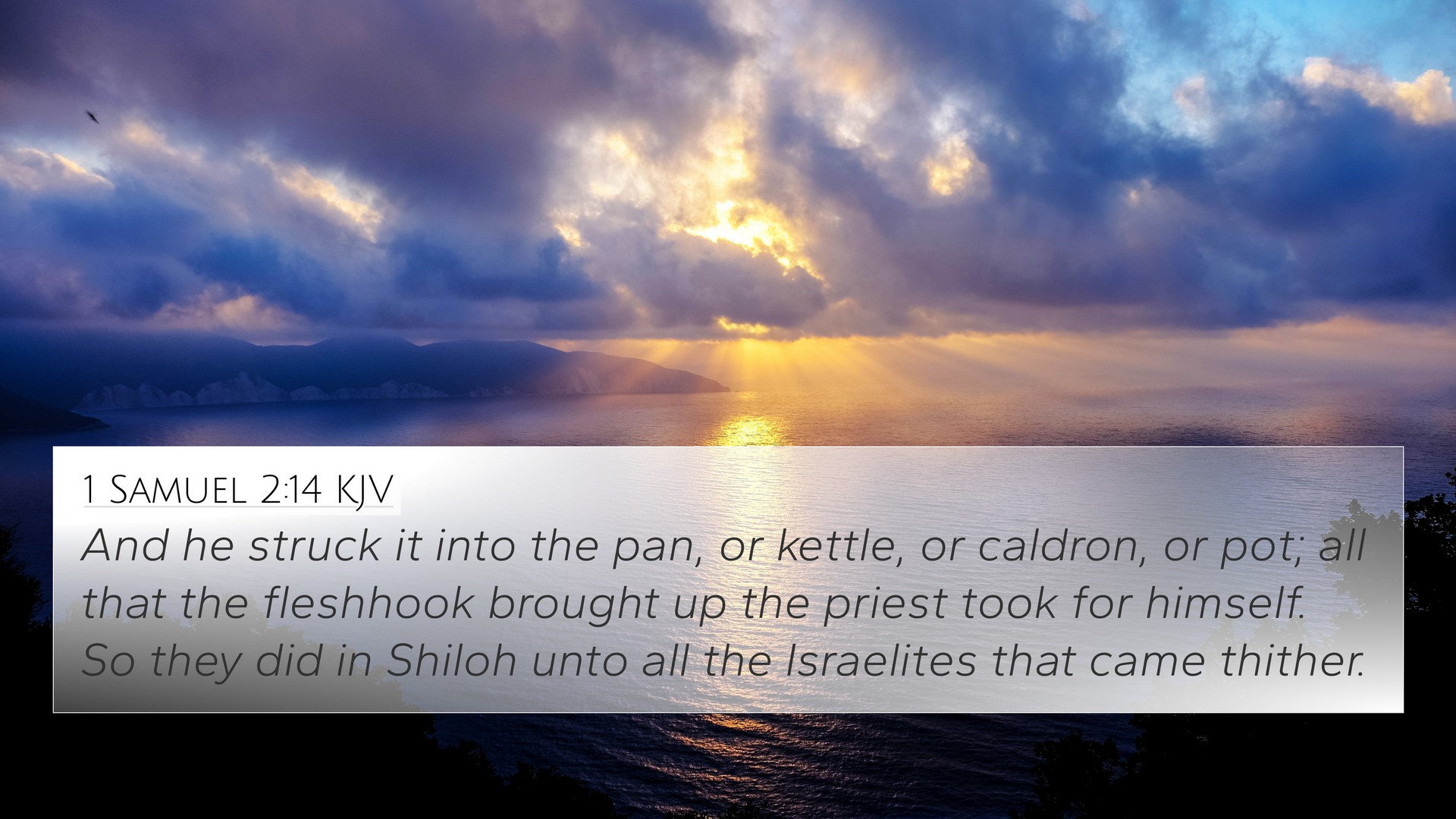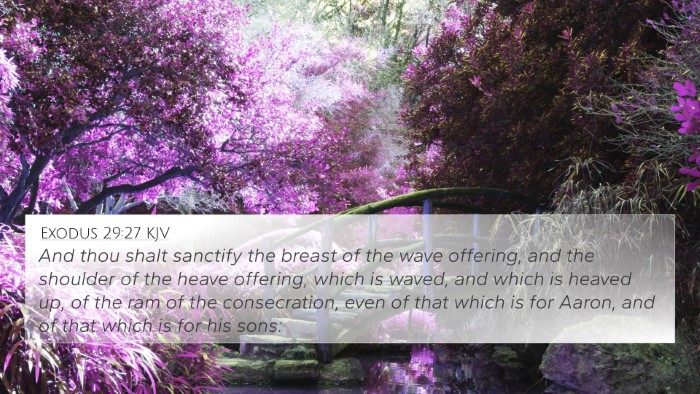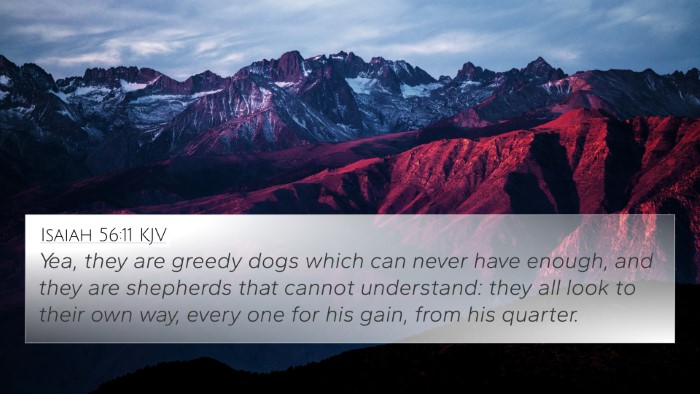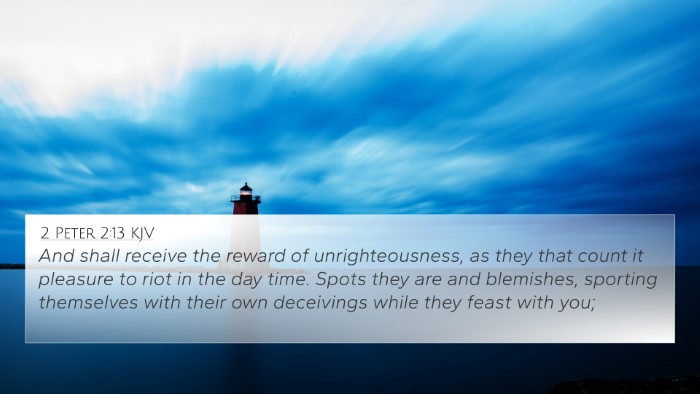Understanding 1 Samuel 2:14
The verse 1 Samuel 2:14 states: "And he struck it into the pot, or kettle, or caldron, or pan; all that the flesh brought up the priest took for himself. So they did in Shiloh unto all the Israelites that came thither." This verse provides insight into the priestly practices during the time of Eli and his sons. This summary combines insights from public domain commentaries, including those of Matthew Henry, Albert Barnes, and Adam Clarke.
Key Themes and Meanings
- Priestly Conduct: The actions of Eli's sons highlight a significant deviation from the original law regarding sacrifices. This reflects on the expectations of priestly behavior and reverence for God's commandments.
- Theft from God: Their attitude displays a sense of entitlement, taking more for themselves rather than observing the spiritual significance of the offerings.
- Consequences of Corruption: The corrupt practices of Eli’s sons not only angered God but also led to severe consequences, showing the importance of integrity in spiritual leadership.
Commentary Insights
Matthew Henry: Henry emphasizes the sacrificial system's significance and how these priests were expected to honor not just the sacrifices but also their significance in worship. He notes that Eli's sons were despising God's sacrifices, taking a portion for themselves, which hints at a deeper spiritual decay within Israel's worship practices.
Albert Barnes: Barnes points out the procedural aspects of the priestly duties prescribed in the Law of Moses and laments how Eli's sons disregarded these. He stresses that their greed led them to misinterpret their roles, ultimately leading to God's judgment upon them.
Adam Clarke: Clarke elaborates on the legal frameworks surrounding the sacrifices, detailing the procedures prescribed in the Law. He relates the practices of these priests to the larger themes of justice and reverence towards God’s ordinances.
Bible Verse Cross-References
This verse relates to several biblical passages that discuss similar themes of divine law, corruption, and the responsibilities of priests. Below are notable cross-references:
- Leviticus 7:30-34: Discusses the portions of sacrifices designated for the priests, illustrating God's allocation for spiritual leaders.
- 1 Samuel 2:12: Refers to the wickedness of Eli's sons, emphasizing their corrupt behavior.
- Exodus 29:27-28: Details concerning offerings and the priests’ share demonstrate the expected adherence to God’s commandments.
- Malachi 1:6-8: God’s rebuke of Israel's priests for their contemptible offerings parallels the issues seen in Eli's household.
- Deuteronomy 18:3-5: Specifies the rights of priests to receive portions from offerings, again contextualizing the priests' legitimate expectations versus Eli's sons' abuse.
- Hebrews 10:28: Talks about consequences for those who despise God's commands, reflecting the ultimate judgment that Eli's sons faced.
- Proverbs 15:8: Relates the concept of righteous sacrifices being pleasing to the Lord, contrasting the behavior of Eli’s sons.
Connections between Bible Verses
The connections between 1 Samuel 2:14 and other scriptures show thematic continuity regarding leadership accountability, sacrificial integrity, and divine judgment. Understanding these inter-Biblical dialogues can offer a richer comprehension of God’s expectations from His people.
Conclusion
In summary, 1 Samuel 2:14 serves as a poignant reminder of the seriousness with which God regards the conduct of spiritual leaders. The behavior of Eli’s sons not only violated God's laws but undermined the very system of worship established for Israel. By studying this verse alongside its cross-references, one can comprehend the importance of integrity and reverence in ministry while also appreciating the broader narrative of God's covenant relationship with His people.
For those seeking deeper connections between scriptures, understanding the cross-references and thematic Bible verse connections can enhance one’s study. Utilizing tools for Bible cross-referencing, like a Bible concordance or cross-reference guides, can significantly aid in uncovering the interwoven messages throughout the Bible.








